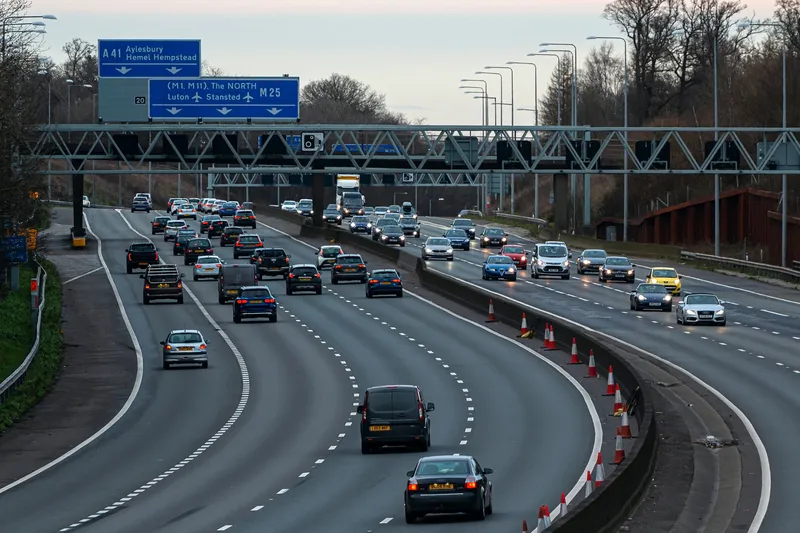A van driver who ignored a
The case highlights the need for incident zone safety: the road block had been put in place by traffic officers following a fatal crash.
Richard Leonard, head of road safety at Highways England, said: “We hope this case sends out an important message because those who ignore road closures put other people’s safety in jeopardy and this was clearly the case here for our traffic officers.”
Carl Phillip Bloom drove his white Mercedes van around cones via the hard shoulder on 20 January last year to avoid the road closure between junctions 2 and 1 of the southbound M42
In addition to being disqualified by magistrates in Kidderminster, Bloom was fined £880 and ordered to pay £620 costs and a £44 victim surcharge. He also had three penalty points added to his licence.
Leonard added: “Any decision to close the motorway is not taken lightly, but when this happens, drivers must obey the closure. It’s there for the safety of everyone on the road – people in difficulty, recovery and emergency services helping them, and all other road users besides.”
By law, drivers must obey directions from uniformed traffic officers, who have the power to stop and direct traffic and close lanes and carriageways.
Failure to comply carries a fine of up to £1,000 along with possible driving licence endorsement or disqualification.
Van driver banned for ignoring motorway incident road block
A van driver who ignored a Highways England road block on the UK’s M42 motorway has been banned from driving for six months. The case highlights the need for incident zone safety: the road block had been put in place by traffic officers following a fatal crash. Richard Leonard, head of road safety at Highways England, said: “We hope this case sends out an important message because those who ignore road closures put other people’s safety in jeopardy and this was clearly the case here for our traffic officers
October 18, 2018
Read time: 2 mins









